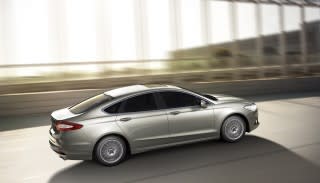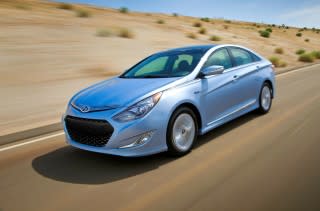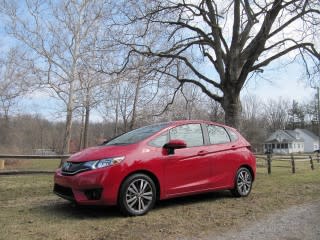Hybrid Sales: Searching For A Silver Lining In Flat Figures
Recent news articles have noted that sales of hybrid-electric vehicle are in a bit of a funk.
Some analysts have started to speculate that sales of hybrids may have already reached a peak, and certainly falling gas prices are a disincentive to pay more for a higher-efficiency vehicle.
DON'T MISS: Plug-In Electric Car Sales In Oct: Leaf Record, Soul EV & e-Golf On Sale: FINAL UPDATE
That conclusion is understandable, given that hybrid market share has been stuck in the 2.5- to 4-percent range for half a decade now.
And that's despite a total of 57 different hybrid models available globally, and more than 15 years of hybrid availability.

While low hybrid sales figures may disappoint those who hoped that swift and broad adoption of the fuel-efficient automobiles would help mitigate the dangers of climate change, perhaps the numbers are not as damning as they initially appear.
History repeated
First, the current plateau (perhaps even decrease) in the proportion of hybrid sales is not a new phenomenon.
RELATED: Ford, Hyundai Dedicated Hybrids To Target 2016 Toyota Prius?
While hybrids saw market share gains during the first 10 years of commercial availability, since 2009 the story has been more of a mixed bag: Annual sales decreased three times and went up only twice.
Those same stories about how hybrids are bumping up against a sales ceiling could also have been written in 2010 and 2011, when they had back-to-back years of falling market share.

The notion expressed by several analysts that each year hybrids will show steady, incremental gains in market share belies their recent history of erratic sales figures.
While the hybrid market has bounced around from year to year, the general trend has been upward--suggesting that the current low numbers may only be temporary.
The pie expands (slowly)
Second, the rise of plug-in vehicles has coincided with the view that hybrids have lost their green halo and would-be buyers are now choosing a Nissan Leaf, Chevy Volt, or even a Tesla Model S instead of a Toyota Prius.
Separating hybrid sales from those of plug-in cars--and pitting the two against each other--misses the broader picture, which is generally optimistic.
ALSO SEE: Volkswagen: Plug-In Hybrids A 'Bridge' To Pure Electric Cars In Future
What we are likely seeing is a shift in which environmentally conscious and innovative customers increasingly purchase battery-electric and plug-in hybrid vehicles.
Conventional hybrids, meanwhile, must now attract new buyers who otherwise would have bought a conventional automobile--expanding the combined market share of all electrified vehicles.

It is important to look not only at hybrid sales, but to combine them with electric and plug-in hybrid numbers.
From this perspective, the combination of the three vehicle types is more or less holding its ground in sales, despite currently low gasoline prices (now less than $3 per gallon in some states).
Emissions: the broader picture
Overall, that means that the broader market of vehicles powered partly or fully by batteries is doing alright.
Finally, hybrid sales in themselves are not terribly important when viewed within the context of overall vehicle emissions.
MORE: Auto Industry Doing Fine In Meeting Gas-Mileage Goals, It Turns Out
Recent dramatic--and generally unexpected--fuel-efficiency improvements in vehicles that only use internal combustion engines means that auto makers haven’t needed to push their hybrid models as much as anticipated to meet their CAFE requirements.

It is possible that automakers will still need to increase their use of hybrid technology substantially to meet future fuel-efficiency requirements.
But if car companies can continue to eke out improvements from engine optimization, multi-speed transmissions, and lightweighting, they will reach the same goal along a different path--and there should be no real cause to lament low hybrid sales numbers.
_______________________________________________

 Yahoo Autos
Yahoo Autos 
